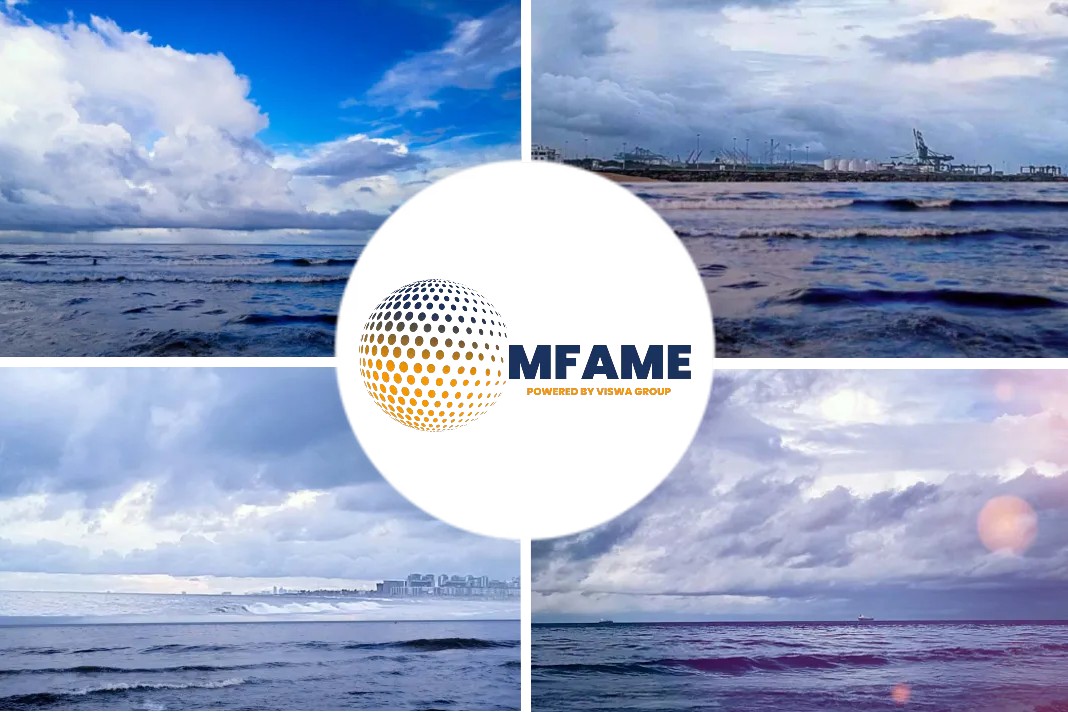
War in Ukraine causes ripple effects for maritime, possibly leading to environmental issues and total loss scenarios, states a Sea News source.
Safety and Shipping Review of 2023
The Safety and Shipping Review of 2023 has shown the ripple effects of the war in Ukraine across the sectors of the maritime industry. When Russia invaded Ukraine in February of last year, it resulted in the entrapment of 112 vessels with over 2,000 seafarers in Ukrainian ports situated in the Black Sea and the Sea of Azov. One year later, 331 seafarers were still stuck in Ukrainian ports. As of March this year, it was estimated that around 40 or more vessels remained trapped in the area, alongside several merchant ships that had suffered damage or destruction during the initial months of the conflict.
Insurers have reason to worry about ships still trapped due to the war. As vessels remain trapped for an extended period, insurers face an increasing risk of losses. Owners and operators are unable to access the stranded vessels for necessary maintenance or repairs, while insurers face challenges in conducting loss assessments. Additionally, as time passes, the salvage values of these vessels decline.
Reaching the one-year milestone holds significant significance in marine insurance policies. In the case of a marine war risk policy, a vessel that remains trapped or blocked for a specified duration, usually one year for hull policies and as short as six months for cargo, may be deemed a total loss.
Nevertheless, insurers are expected to undertake reasonable measures to minimise losses or secure the release of the vessel. This may involve utilising safe passage agreements, such as the Black Sea Grain Agreement signed on July 22, 2022, facilitated by the United Nations and Turkey. The agreement aims to establish secure routes for grain and fertiliser exports in the Black Sea region.
Through the grain corridor, certain vessels that were previously trapped due to the Ukraine war have managed to escape, with the added benefit of being covered by a specialised insurance facility.
Black Sea Grain Agreement
Despite the establishment of the Black Sea Grain Agreement, shipping risks in the Black Sea persist at a heightened level, primarily due to the ongoing threat of war. NATO has recently cautioned about the significant risk of collateral damage or direct attacks on civilian shipping within the war risk zone of the Black Sea. Moreover, the possibility of shipping harassment and diversion cannot be ruled out. Additionally, there is a notable threat of various disruptions in the region, including GPS jamming, AIS spoofing, communications jamming, electronic interference and cyber-attacks, all of which are considered to be of high concern.
Embargoes and sanctions limiting trade with Russia also impact the state of shipping. In addition to the existing bans on Russian oil imports by the US, UK and EU, a price cap has been imposed to further restrict the transportation of Russian oil. This price cap prohibits operators, service providers, and insurers in participating countries from facilitating the transport of Russian oil above the specified limit. Even if the price cap is exceeded, insurers and reinsurers show limited interest in underwriting Russian oil trade due to increased administrative burden and concerns related to safety and pollution risks. Any violation of the price cap would render the vessel uninsured.
Russia and its allies
Despite these sanctions, Russia and its allies are attempting to bypass them. The International Union of Marine Insurance (IUMI) reports that Russia has assembled its own fleet of approximately 100 vessels for oil transportation, with potential access to an additional 200 vessels from countries such as Venezuela and North Korea. This “shadow fleet” allows Russia to effectively sell its oil without valid insurance. TankerTrackers indicates that around 20% of the worldwide fleet of very large and ultra large tankers operate in a manner that technically violates sanctions against Iran, Venezuela, or increasingly, Russia. Violations of the rules were also found in approximately 15% of the suezmax fleet and 11% of the Aframax fleet.
The sanctions and Russia’s invasion of Ukraine have led many prominent certification providers, engine makers, and insurers to withdraw their services from ships carrying oil from sanctioned countries like Iran, Russia and Venezuela. Consequently, there has been a reduction in oversight of vessels involved in oil exports from these countries. Ship tracking and accident data analysis reveal that in 2022, there were at least eight incidents of groundings, collisions or near misses involving tankers transporting sanctioned oil products, matching the combined number of such incidents from the previous three years. This has caused environmental concern regarding oil spillage and other harmful impacts shadow vessels could have on the maritime industry.
Did you subscribe to our newsletter?
It’s free! Click here to subscribe!
Source: Sea News
















